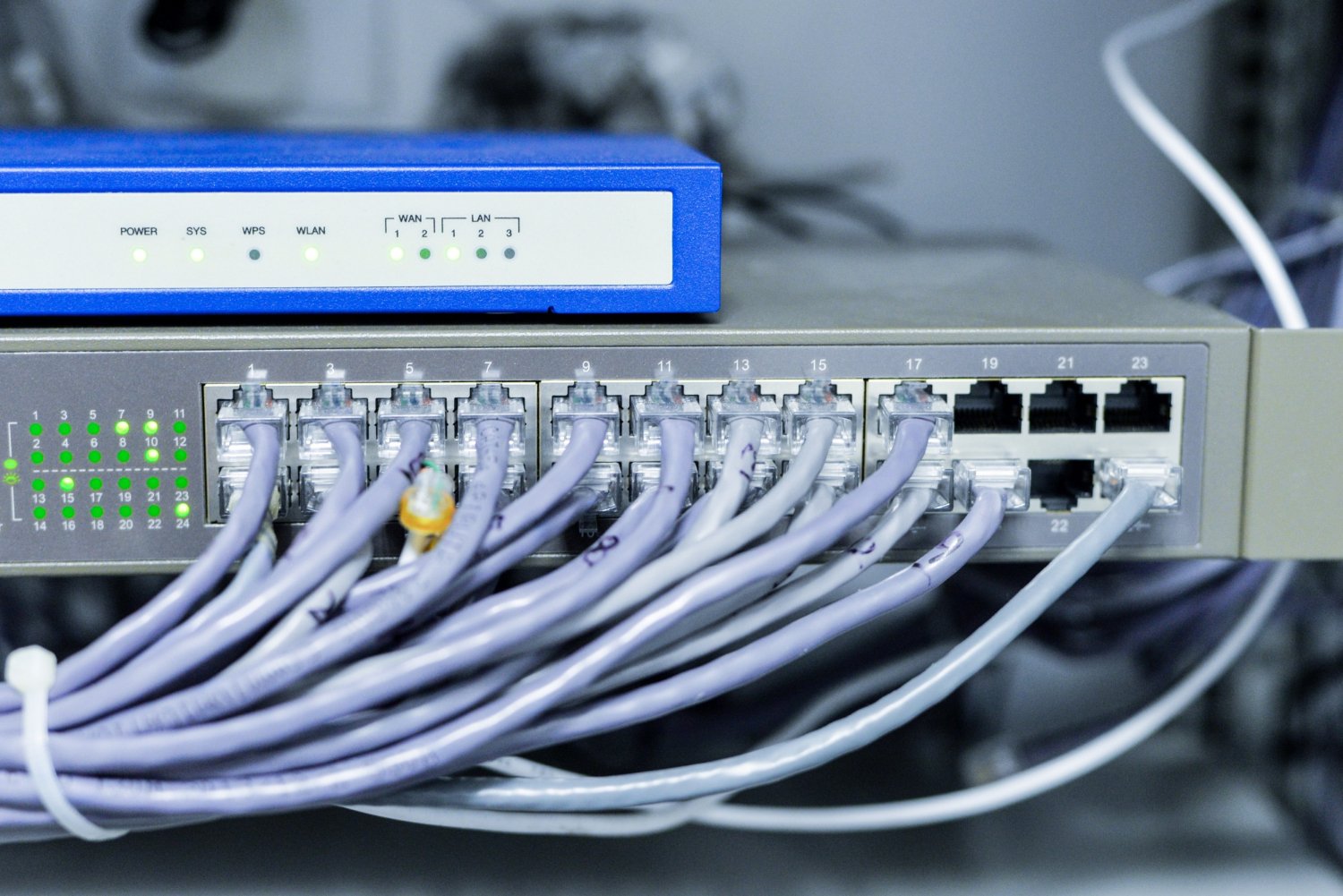
Can a Dedicated IP Speed Up My Website?
Introduction
In the intricate world of web hosting, IP addresses play a foundational role, often acting as the backbone of internet connectivity and accessibility. Twebshis introduction offers a brief overview of what IP addresses are and their critical role in the realm of web hosting. Understanding IP addresses is not just about grasping a technical concept; it’s about appreciating a key element that makes websites accessible and functional on the internet.
Understanding IP Addresses
Demystifying IP Addresses: A Layman’s Guide
IP addresses, or Internet Protocol addresses, are akin to unique identifiers for each device connected to the internet. Just as a home address allows mail to be delivered to the right place, an IP address ensures data is sent to the correct device on a network. In essence, IP addresses are the cornerstone of internet communication, allowing devices to find and communicate with each other effectively across the vast web of digital connections.
Dedicated vs. Shared IP Addresses: The Core Differences
When it comes to web hosting, IP addresses are categorized into two primary types: dedicated and shared. A dedicated IP address means that a website has its unique address, not shared with any other site. This is akin to having a private phone line. In contrast, a shared IP address is like a shared phone line used by multiple websites. While both types have their advantages and drawbacks, understanding the distinction is crucial for anyone involved in managing or hosting a website.

The Dedicated IP Address
Exploring the World of Dedicated IPs
Dedicated IP addresses represent a significant segment in the web hosting ecosystem. They provide a unique and exclusive internet address solely for one’s use, typically assigned to a specific website or server. This section delves into the detailed insights of dedicated IP addresses, exploring their usage, benefits, and scenarios where they are most advantageous. It sheds light on why and when individuals or businesses opt for a dedicated IP, highlighting its importance in specific web hosting contexts.
SSL Certificates and Security on Dedicated IPs
One of the critical aspects of dedicated IPs is their interaction with SSL (Secure Socket Layer) certificates, which are pivotal for website security. A dedicated IP address can offer enhanced security benefits, especially when it comes to SSL certificate implementation. This part of the discussion focuses on how having a dedicated IP can simplify the process of obtaining and managing SSL certificates, thereby bolstering the overall security posture of a website or server.
Email Solutions and Deliverability: The Dedicated IP Advantage
Dedicated IP addresses also play a vital role in the realm of email solutions and deliverability. This section examines how dedicated IPs can improve email deliverability, reducing the chances of emails being marked as spam or getting lost in the vast sea of digital correspondence. It discusses the advantages of using a dedicated IP for email marketing campaigns and business communication, emphasizing its role in building a reliable and efficient email communication system.
Dedicated IP for SEO: Myth or Reality?
There is a longstanding debate in the SEO community about the impact of dedicated IPs on search engine optimization. This part of the discussion aims to evaluate the claims and misconceptions surrounding dedicated IPs and their alleged SEO benefits. It explores whether dedicated IPs have a direct impact on a website’s search engine rankings or if this is merely a myth. By analyzing current SEO practices and expert opinions, this section seeks to provide a clear and informed perspective on the relationship between dedicated IP addresses and SEO.
The Shared IP Address
Shared IP Addresses Uncovered
Shared IP addresses are a staple in the world of web hosting, where a single IP address is used by multiple websites or users. This section delves into the nuts and bolts of shared IP addresses, elucidating their common usage and the scenarios in which they are most effectively employed. Understanding shared IPs is crucial for recognizing their role in web hosting, especially for those managing websites with limited resources or those just starting out.
SSL with Shared IPs: Balancing Security and Accessibility
The implementation of SSL (Secure Socket Layer) certificates on shared IPs presents a unique set of challenges and opportunities. This part of the discussion explores the viability of using SSL certificates with shared IP addresses, highlighting the technological advancements that have made this possible. It examines how shared IPs, in conjunction with SSL certificates, can still offer a reasonable level of security and accessibility, making it a viable option for many website owners.
The Impact of Shared IPs on Email and Site Performance
Shared IP addresses can have significant implications for both email services and website performance. This section analyzes how the use of a shared IP might affect the deliverability of emails, potentially increasing the risk of being blacklisted or marked as spam due to the actions of other users sharing the same IP. Furthermore, it delves into the impact on site performance, discussing how sharing an IP with multiple websites can influence factors such as loading times and overall site reliability. This analysis provides a comprehensive view of the advantages and drawbacks of using shared IP addresses in the context of email services and website performance.
Comparing and Contrasting
Dedicated vs. Shared: A Network and Site Speed Analysis
The choice between dedicated and shared IP addresses can have a significant impact on network and website speed. This section investigates how each IP type influences the speed and responsiveness of a website. Dedicated IPs often provide a more stable and potentially faster connection, as they are not shared with other sites that could consume bandwidth. On the other hand, shared IPs, while possibly slower due to shared resources, can still offer adequate performance for many websites. This analysis aims to provide a clear understanding of how these IP types affect website loading times and overall network efficiency.

Cost Analysis: Weighing the Financial Implications
One of the most critical factors in choosing between dedicated and shared IP addresses is cost. This part of the discussion compares the financial implications of both options. Dedicated IPs typically come with a higher price tag, reflecting their exclusivity and the additional benefits they provide. In contrast, shared IPs are generally more affordable, making them a popular choice for small businesses or personal websites. This cost analysis helps in making an informed decision based on budget constraints and the specific needs of a website.
The SEO Puzzle: Does IP Type Matter?
The impact of IP type on SEO is a topic of much debate. This section takes a deep dive into the SEO implications of using dedicated versus shared IPs. It explores the myth and reality of how search engines view these IP types and whether they have a direct effect on a website’s search engine ranking. By examining current SEO best practices and expert insights, this part aims to unravel the complexities of the relationship between IP type and SEO, providing clarity on whether the type of IP address really matters in the grand scheme of search engine optimization.
Conclusion
Decoding the Myth: Does Your Site Really Need a Dedicated IP?
As we wrap up this exploration of IP addresses in web hosting, it’s essential to address the central question: does your website truly require a dedicated IP? The journey through the intricacies of dedicated and shared IPs reveals that the answer is not a straightforward one, but rather depends on specific needs and circumstances.
For businesses or websites that handle sensitive data, require enhanced security measures like SSL certificates, or need to maintain a pristine email sending reputation, a dedicated IP might be the prudent choice. It offers a level of control and stability that shared IPs may not be able to match. However, for small businesses, personal blogs, or websites where budget constraints are a significant consideration, shared IPs present a viable and efficient alternative. They offer adequate performance and security for a majority of standard web hosting needs at a more affordable cost.
In the context of website speed and SEO, while there are subtle differences between the two types of IPs, these should not be the sole deciding factors. Modern advancements in hosting technology have somewhat leveled the playing field, making shared IPs more robust than ever before.
Ultimately, the decision boils down to understanding and aligning with your website’s specific requirements, financial capabilities, and long-term objectives. This comprehensive look into both dedicated and shared IP addresses aims to provide the necessary insights to make an informed choice, debunking myths and highlighting practical considerations in the ever-evolving landscape of web hosting.

As a seasoned professional with a unique blend of skills in Computer Design and Digital Marketing, I bring a comprehensive perspective to the digital landscape. Holding degrees in both Computer Science and Marketing, I excel in creating visually appealing and user-friendly designs while strategically promoting them in the digital world.

